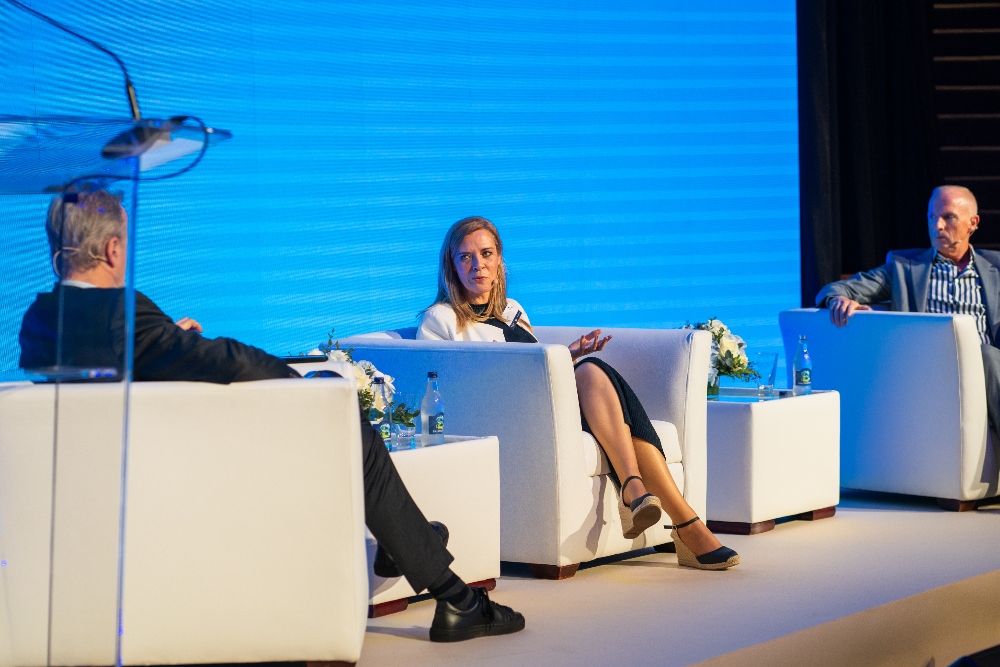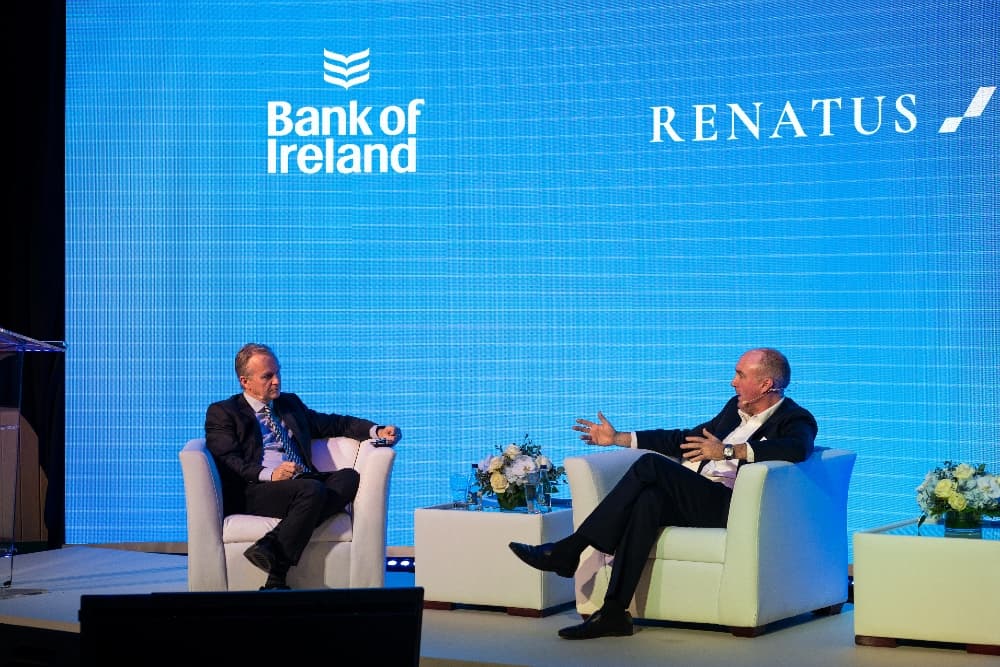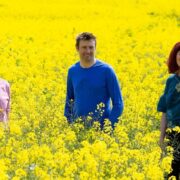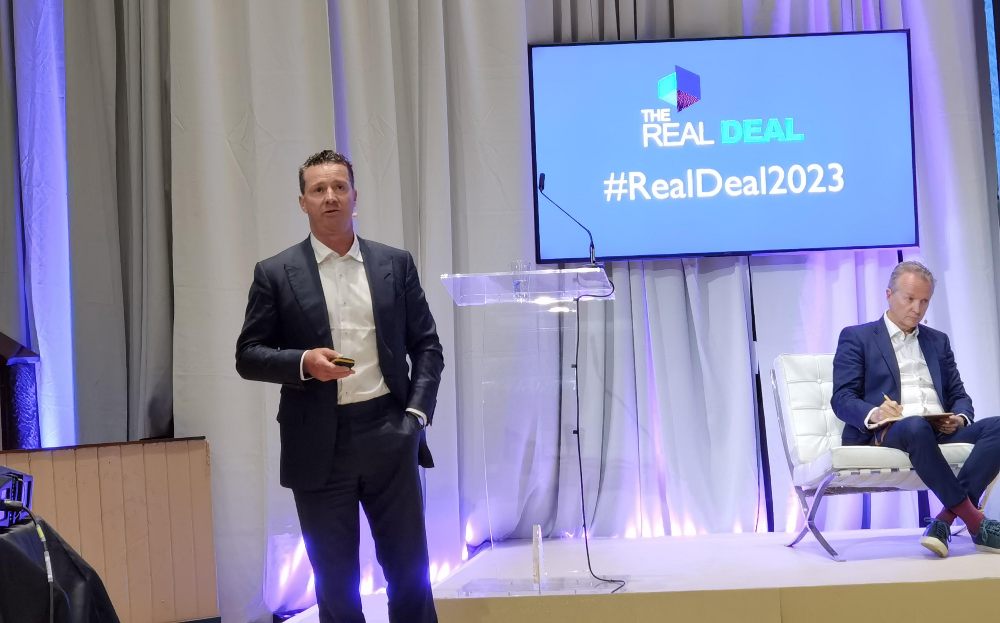Before an audience of 1,100 Irish business people at The Real Deal 2024, Irish entrepreneurs behind success stories from Echelon Data Centres and Version 1 to Tandem, Ergo, McCabes Pharmacy and Boojum gave candid accounts of how they got where they are today.
The Real Deal 2024 at Goffs in Kildare last week (16 Ma) was action-packed and insightful.
The event, which was organised by Renatus, Bank of Ireland and Fitzgerald Power and sponsored by LK Shields, The Currency, The Panel Interpath Advisory and Davy, saw leading figures in Ireland’s business world gave fascinating accounts of their business careers and achievements.
“We could well miss out on what is the next huge wave of investments. That is a real risk for Ireland”
Of course, the networking combined with a beautiful sunny day and ice cream made it a valuable and memorable occasion for everyone who came along.
The Real Deal 2024 highlights
A recurring theme was that change is constant and it is how as business leaders embrace those changes can often be the difference between success and failure. Among the key highlights:
- Niall Molloy, CEO and co-founder of Echelon Data Centres, spoke about how he grew the business to be one of the largest data centre platforms in Europe with an enterprise value of more than €2.5bn. He warned that ongoing debate around data centres and electricity is dangerous and could cost Ireland in the long run, especially at the dawn of the AI age. “We could well miss out on what is the next huge wave of investments. That is a real risk for Ireland.”
- Jarlath Dooley, one of the most seasoned board leaders from Ireland’s IT landscape, has guided successful companies from Iona to Fineos and most recently Version 1. He spoke about how people management and scaling a business go hand-in-hand and emphasised the importance of cultural due diligence in M&A transactions. “In my experience of M&A there is lots of legal due diligence, financial due diligence, commercial due diligence. Very seldom do I come across cultural due diligence. And if you get that part wrong, the chances of extracting value from your acquisition are seldom or low.”

- Entrepreneur Aisling Teillard sold her HR tech business Tandem to Swiss-headquartered Beqom in 2022. She recalled how a realisation that the HR review system still in use in most organisations today was fundamentally flawed set Tandem on its journey. “We recognised that there was a different way to do performance management. Companies really haven’t changed how they do it in 20 years, it’s an old fashioned concept. But what if we make it about people’s growth and potential and being able to give and receive feedback throughout the year as opposed to a one-off review?”
- John Purdy co-founded Ergo 28 years ago and has built it to become a €200m business while Fenergo, another spinoff that he founded, has reached unicorn status with a valuation north of $1bn. He told the audience that embracing cloud computing set Ergo up for the future. “The market was driving that change, if we didn’t conform to that and train our people and be prepared for that we were dead in the water because the traditional way of delivering technology was dying. So we put a lot of money into training people around cloud. We also put a lot of effort into acquiring a couple of small businesses that gave us that that capability. And it’s another example of how I think we tried to innovate really well.”
- Sharon McCabe is the driving force behind the McCabes Pharmacy chain, which grew from a small family business to a 32-store chain. McCabes was recently acquired by PHX through its subsidiary Lloyds Pharmacy, effectively more than doubling the size of the overall business and putting her in charge of an enlarged pharmacy empire. She explained that efficiencies in technology and brand made McCabes an ideal acquisition target. “I had never really gone out with a very specific plan to exit the business, we actually were on a very planned growth strategy that I’d given full energy to. But what one of the interesting things was that in trying to grow the business and put the platforms and the processes in place, we started to make ourselves attractive to people looking in. And when this came up, I suppose our brand looked attractive, the culture of what we were doing was attractive, and they needed a fix. So it, it actually the stars aligned, it has worked out very well.”
- David Maxwell is the visionary leader and managing director of the Boojum Mexican street food chain that emerged in Belfast and is now growing across Ireland and the UK. The business sold a controlling stake to Azzuri Group last year. Maxwell spoke about his ambition for the growth of Boojum and reflected on how tough decisions made during the pandemic were the making of the business, accelerating plans to include a delivery model from five years to just five months. “When you look back, we made some really good early decisions. We actually we had two plans. Plan A was shut it down, hibernate, which is what a lot of hospitality businesses did. And plan B was to try and create a model where you weren’t running cash and you could keep the lights on and people working safely. And we figured how to do that. Covid was initially awful. But fast forward 18 months, the business that emerged from that period was fitter, leaner, more profitable.”
-
Bank of Ireland is welcoming new customers every day – funding investments, working capital and expansions across multiple sectors. To learn more, click here






